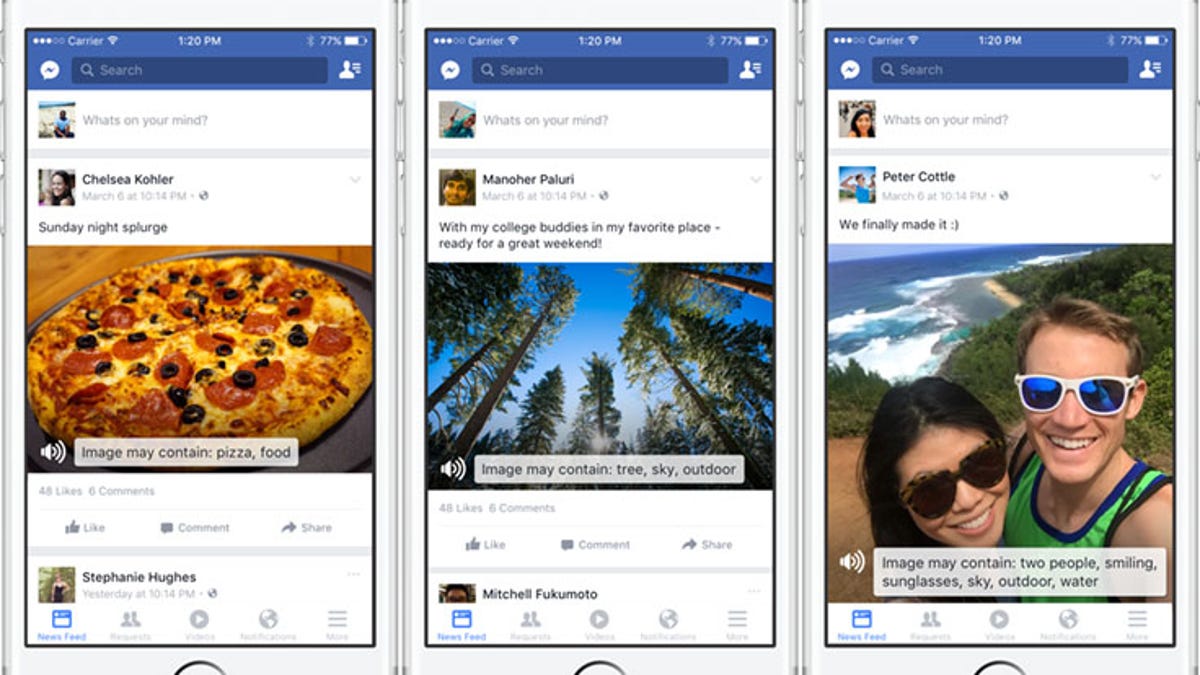Facebook is getting better for the blind thanks to clever AI
Photos posted on Facebook will now get automated descriptions added to them so that screen readers can help the visually impaired share the conversation. Although currently it's for iOS only...
Studies have shown that blind people often feel excluded or even isolated on social media when they're unable to fully join in on discussions around visual media. A new feature from Facebook hopes to fix that.
The company is expanding out its accessibility features with automatic alternative text -- a description of what's in an image -- being provided via new object recognition technology that the social network has been working on for months.
Back in the early days of the internet, the alternative text tag (or alt text tag) was an important part of putting your webpage together. The alt-text is what shows up when images broke or failed to load thanks to slow dial-up speed or if people were using a text-based web browser. (Yeah, they existed and you can still download the most popular one, Lynx, today.)
These days it's a largely forgotten art, but Facebook has used it in putting together a highly sophisticated system for object recognition in images. This means that blind or visually impaired users who access Facebook via screen readers (devices or programs that give an audio description of what's happening on a screen) will get short descriptions of the images people are posting.
According to Facebook, these could be as simple as "food, pizza" or as complex as "two people, smiling, sunglasses, outdoor, sky, water". All descriptions come with the short caveat "image may contain".
The company has been working on automatic alt text for around ten months now, and notes that around 2 billion photos are shared each day across Facebook, Instagram, Messenger, and WhatsApp. It follows Twitter recently allowing users to manually add alt text to their pictures to help out any visually impaired followers.
Currently, automatic alt text for Facebook is only available in English and only in the US, UK, Canada, Australia, and New Zealand. More importantly it only works with screen readers being used on an iOS device. Facebook says that will all change with more platforms, languages and regions coming soon.


